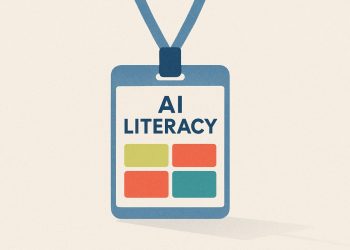Generative AI courses in 2025 help business leaders learn how to use powerful AI tools in real jobs. These classes teach skills like writing prompts for AI, using AI in daily work, and checking AI for mistakes. Students work on real-world projects and see how companies boost profits and save time with AI. People who finish these courses can earn more money and get better jobs, especially in marketing, finance, and product design. Anyone ready to learn and try new tech can sign up for short, hands-on courses at top universities.
What essential skills and benefits do generative AI courses offer business leaders in 2025?
Generative AI courses for business leaders in 2025 teach hands-on skills like prompt engineering, workflow integration, and AI result auditing. Participants gain practical experience, learn from real case studies, and master responsible AI practices, leading to higher wage premiums and strong career prospects in marketing, finance, and product development.
The AI learning landscape for business professionals has accelerated dramatically in 2025 , with new courses launching at Cambridge, Harvard, and Washington that merge generative AI theory with immediate, profit-relevant practice.
Why the surge now?
McKinsey estimates up to $4.4 trillion in annual global value from generative AI, most of it in marketing, sales, and product development. To capture even a fraction of this, companies need staff who can (1) prompt models like GPT-4o or Claude-3.7, (2) embed the outputs into existing workflows, and (3) audit results for bias and compliance.
What the new cohort of courses offers
| Core element | What you actually do |
|---|---|
| Interactive labs (Cambridge, Harvard) | Run 15–20 guided prompts to generate full campaign assets – ad copy, landing pages, and forecasting models – in under 60 minutes. Students finish with a shareable portfolio. |
| Real case studies | Deconstruct how *Novartis * cut regulatory report drafting time by 35 % with custom LLMs, and how a mid-tier retailer lifted Q4 revenue 12 % via AI-driven product descriptions. |
| Governance checklist | Walk through the 2025 Responsible AI checklist endorsed by the U.S. Intelligence Community and Fortune-100 legal teams (source). |
| Model-selection matrix | Side-by-side comparison of GPT-4o mini vs. Gemini-2.0 vs. open-source Llama-3.3 for cost, latency, and hallucination rates on finance, healthcare, and e-commerce tasks. |
Career impact in numbers
- 56 % wage premium for workers who can deploy generative AI tools, up from 25 % in 2024 (Business Engineer analysis)
- 11 million new roles expected globally versus 9 million displaced by 2026 (World Economic Forum, 2025 Future of Jobs Report)
- Entry-level marketing coordinator roles that once required three years’ experience now list “proficiency with generative AI prompt design” as the top skill.
Who should enroll today
- Marketing managers aiming to automate multichannel content calendars.
- Finance analysts who need to forecast cash-flow scenarios in minutes, not days.
- Product owners looking to embed AI features without hiring an entire data-science team.
Courses run from 4-week micro-credentials (University of Washington) to 8-week executive intensives (Harvard DCE), with rolling starts through December 2025. Prerequisites are minimal: comfort with spreadsheets and a willingness to experiment with cloud-based APIs.
What practical skills will I master by completing a Generative AI course for business leaders in 2025?
You will walk away able to automate multi-channel content campaigns, build AI-driven financial forecasting models, and map the top 50 generative tools to your firm’s exact objectives. Hands-on labs teach you to feed your own datasets into models like GPT and DALL-E, then integrate the outputs into CRM and BI dashboards without writing a single line of code. Graduates from the Harvard AI Marketing program report cutting campaign production time by 42 % while boosting engagement metrics by an average of 28 % within three months.
Which universities and platforms offer the most recognized Generative AI certificates right now?
The University of Cambridge, Harvard, Oxford, and University of Washington all have live, updated curricula running through 2025–2026. The Cambridge Generative AI in Business certificate is CPD-accredited and carries a University of Cambridge digital badge for LinkedIn. Meanwhile, Mercury Training’s shorter AI for Business Professionals course is popular among managers who need to speak the same language as their data teams. All programs combine real case studies with sandbox environments so you test ideas on actual company data.
How are hiring managers reacting to candidates with Generative AI certifications?
Job posts specifying “generative AI proficiency” rose 260 % between 2024 and 2025, and candidates listing accredited certificates command an average 56 % wage premium, according to the World Economic Forum. New specialized titles such as AI Content Strategist, Generative Marketing Analyst, and Prompt Engineer are appearing at Fortune 500 firms that previously had no AI roles. Recruiters at companies like Deloitte and Salesforce now treat these credentials as proxy signals for innovation capability.
What ethical red flags should business leaders watch for when deploying generative models?
Leaders must ensure fairness audits, explainability documentation, and human oversight loops are embedded from day one. New 2025 regulations in finance and healthcare require disclosure when an algorithm influences a credit decision or patient pathway; non-compliance fines can reach 4 % of global turnover. Courses now include a mandatory governance workshop where you build a responsible AI checklist and practice third-party bias reviews to spot hidden demographic skews before launch.
How can I measure the real ROI after rolling out generative AI initiatives?
Programs teach you to set tiered KPIs: immediate efficiency (content velocity, cost per asset), mid-term quality (campaign CTR, forecast accuracy), and long-term strategic impact (revenue lift, time-to-market). Harvard’s capstone asks students to run a 90-day pilot and present a board-ready ROI deck; the median reported payback period among graduates is 7.3 months. Softweb Solutions notes that firms following this framework are on track to capture part of the $4.4 trillion annual value McKinsey attributes to generative AI adoption.



















